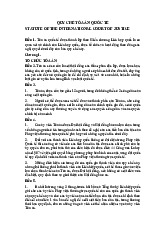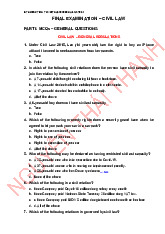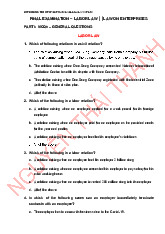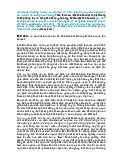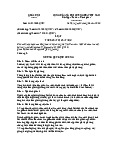
Preview text:
Comprehension Quiz
1. Which form of punishment involves inflicting bodily pain or suffering on the offender?
2. What sort of crime is prostitution?
3. Which form of punishment involves killing the offender?
4. What example is given of an incident which led to both a criminal prosecution and a tort?
5. What are the two elements which characterize most crimes?
6. What words in the text means “prohibit”?
7. What is another name for criminal law?
8. What is the name for less serious crimes, such as petty theft?
9. What two types of trier are given in the text?
10. What example is given in the text of an offence against property?
11. What is the name for more serious crimes, such as rape?
12. Who brings the suit in a civil case?
13. What, in percentage terms, does “the balance of probabilities” mean?
14. What sort of crime is insider dealing?
15. Who brings a prosecution in a criminal case?
16. What is the balance of probabilities called in the USA?
17. What two examples are given of strict liability crimes?
18. What two terms are used to refer to the need for prosecutor to prove guilt beyond reasonable doubt?
19. What are two names for loss of liberty?
20. What example is given in the text of an offence against the person?
